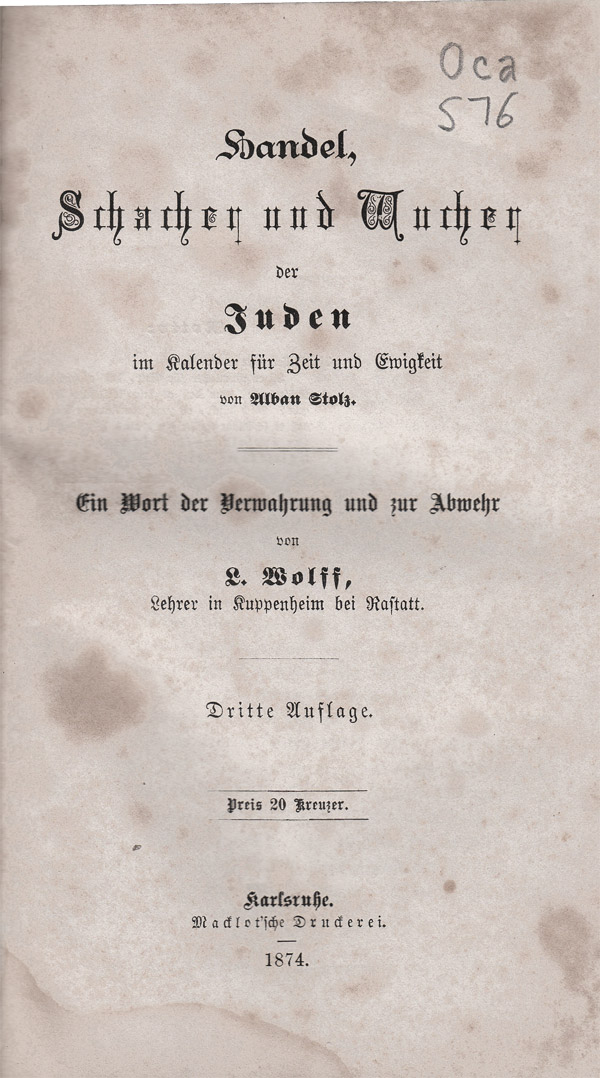Lion Wolff, Handel, Schacher und Wucher der Juden im Kalender für Zeit und Ewigkeit von Alban Stolz: ein Wort der Verwahrung und zur Abwehr (Karlsruhe: Macklot, 1874).
In many respects, Lion Wolff's small pamphlet can be read as a typical apologetic piece of the nineteenth century. Wolff was a Jewish teacher in a small village in a predominantly Catholic part of Baden (Germany), who reacted to an antisemitic treatise that was highly successful in his environment: Alban Stolz's Kalender für Zeit und Ewigkeit. In this calendar for the Catholic population, Stolz had attacked Jews as enemies of the simple farmer, as treacherous petty merchants, and usurers. Following the example of earlier apologetic pieces against antisemites, Wolff was not merely defensive but sought to write a sharp, witty, and popular rebuttal.
What did it mean to write poignant apologetics? It implied that one could draw on a generally intelligible language to discredit one's enemy, and no language was as effective during this period as anti-Catholicism. Starting with conflicts in the 1840s and peaking during the so-called Kulturkampf of the 1870s, anti-Catholicism had become an identifying marker of liberal patriotism in Germany. At the time that Wolff wrote his pamphlet, debates on the compatibility of particular religions with good citizenship had focused not on Jews but on Catholics, and Wolff was skillful at exploiting this fact.
Wolff, for example, countered the claim that Jews were taking advantage of the drinking habits of the peasantry with the following argument: The peasants' tendency to get inebriated with brandy was in truth the result of the Catholic clergy's pernicious activities. The priests preached the dogma of papal infallibility to women, who naturally accepted it. They then went home and demanded of their husbands that they follow them in this belief
As in other cases we should not read this anti-Catholicism purely as a strategy. It was rather an attempt to defend the Jews with stereotypes that the author might have well internalized. Nor did Wolff rely only on anti-Catholicism; much of the pamphlet is involved in a more traditional attempt to discredit the various accusations Stolz had made against the Jews. Wolff's success
